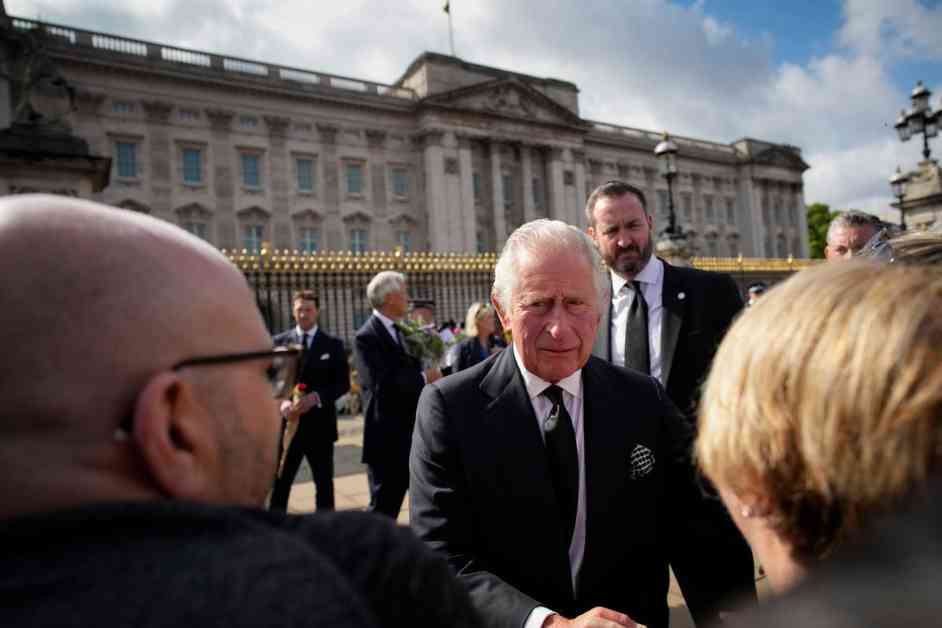Insight into Prince Charles’s First Day as King: Royal Biographer’s Perspective
As news of Queen Elizabeth II’s passing spread, the world turned its attention to Prince Charles, who was thrust into the role of King almost instantly. Royal biographer Robert Hardman provides a unique perspective on Charles’s first hours as monarch, shedding light on the emotional and logistical challenges he faced.
Hardman recounts the moment Charles learned of his mother’s death while driving back to Balmoral Castle. The news came in a phone call that halted the car, with his private secretary addressing him as “Your Majesty” for the first time. Despite the gravity of the situation, Charles wasted no time in assuming his new responsibilities, immediately diving into the myriad tasks that awaited him as King.
Transitioning into Monarchy
The transition from Prince to King was swift and seamless for Charles, who wasted no time in getting to work. Hardman reveals that within hours of receiving the news, Charles was already making key decisions, such as appointing a new Metropolitan police commissioner. The weight of the crown was evident as he juggled personal grief with the demands of his new role, showcasing his resilience and sense of duty.
One of the most poignant moments came when Charles had to inform his family members, starting with Prince William, about the Queen’s passing. Hardman describes the somber atmosphere as Charles grappled with the reality of his new position and the responsibilities that came with it. Despite the overwhelming nature of the situation, Charles remained composed and focused on fulfilling his duties as the new King.
A New Era
Charles’s reign marked a significant shift from his mother’s, as evidenced by the outpouring of emotion from the public upon his arrival at Buckingham Palace. Hardman paints a vivid picture of the scene outside the palace, where a woman broke protocol to embrace Charles in a heartfelt hug. This display of raw emotion underscored the human side of monarchy and highlighted Charles’s approachability and empathy.
The filming of Charles’s first address as King was a pivotal moment in his reign, captured in just two takes with the first one ultimately being used. Hardman’s account of this historic event showcases Charles’s poise and determination to lead his country with grace and dignity. Despite the weight of the crown, Charles’s genuine demeanor and willingness to connect with the public set him apart as a monarch who was in touch with the people he served.
In the days following his ascension to the throne, Charles faced a multitude of challenges and decisions that tested his mettle as King. From addressing the nation to overseeing the royal affairs, he embraced his new role with a sense of duty and dedication that earned him respect and admiration from his subjects. Hardman’s insights offer a glimpse into the complex world of monarchy and the pressures that come with leading a nation through times of transition and change.
As Charles settled into his role as King, the world watched with a mixture of curiosity and anticipation. His first days on the throne were a reflection of his character and leadership style, setting the stage for a new era in the monarchy. Hardman’s account of Charles’s early reign provides a valuable perspective on the man who would one day inherit the crown and lead his country with a sense of purpose and vision.












